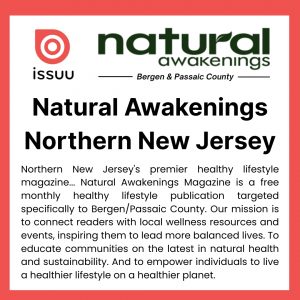Farm Foods in a Capsule: Finding Sustainable, Nutrient-Dense Options
The global dietary supplement industry reached sales of more than $177 billion in 2023. Natural supplements are gaining more attention for their emphasis on whole-food ingredients and for their holistic approach to nutrition.
Growing Demand
A nationwide survey by the Council for Responsible Nutrition found that 74 percent of American adults take dietary supplements, with 92 percent of users reporting that they are essential for maintaining health. According to the National Institutes of Health, although supplements cannot replace a healthy diet, they can help ensure adequate amounts of essential nutrients and improve health. For example, calcium and vitamin D support strong bones, folic acid decreases the risk of certain birth defects and omega-3 fatty acids may help some people with heart disease.
David Perlmutter, M.D., a neurologist and expert in gluten issues, brain health and nutrition, sees an increased role of supplements in the future. He explains, “The world of health care is moving to a place of recognizing the fundamental role of metabolism in general health and compromising health through chronic degenerative conditions. I think there is a place for appropriate use of nutritional supplements when they are developed and validated in this arena.”
Synthetic Supplements
“Most nutritional supplements are the product of something going on in a chemistry laboratory,” laments Perlmutter, adding that manmade supplements contain nutrients that are artificially created, which may be harder for the body to recognize and process.
“Synthetic supplements are loaded up with excipients like magnesium dioxides, silica, etc.,” explains David Stelzer, founder and chief executive officer of Azure Standard, a producer of organic foods and natural products. “A lot of times, the minerals aren’t even predigested. If you’re taking iron, you wouldn’t be getting much better in those pills than if you were sucking on rusty nails, and that is not what the body can utilize.”
Whole-Food Supplements
Sometimes referred to as farm-focused supplements, whole-food supplements are made by extracting nutrients from fruits, vegetables and herbs with an emphasis on raw, unprocessed ingredients. They often contain organic food extracts and include a variety of vitamins, minerals, enzymes, antioxidants and phytonutrients in their natural forms that can boost absorption, compared to synthetic alternatives.
“What we want to look for [in food-based supplements] is that they are sourcing sustainably; that they’re emphasizing organic, raw materials and non-GMO sources; that no harmful chemicals have been used, nor is there any part of the manufacturing process that does a significant amount of damage,” Perlmutter recommends. “Look for the emblems that indicate USDA Certified Organic ingredients. Some manufacturers also have B Corp certification, indicating the company is socially and environmentally sensitive.”
“Look at the source. Where is it from? What kind of products is it made from? What is being used as a flow agent or filler, if anything? How has it been produced? Make sure you can trust the company as well,” says Stelzer, adding that brands like Garden of Life, AzureWell, MegaFood and Standard Process promote their commitment to quality and transparency.
Shopping Tips
- Certifications: Choose products that are Food Alliance Certified, USDA Certified Organic, Demeter Certified Biodynamic, Non-GMO Project Verified and Rainforest Alliance Certified.
- Ingredients: Opt for organic ingredients and avoid supplements with artificial colors, flavors and fillers.
- Nutrient Density: Prioritize supplements that contain a variety of vitamins, minerals and phytonutrients from whole food sources.
- Manufacturer: Visit brand websites, looking for the transparency of their manufacturing, quality control and sustainability disclosures.
“Food should be our medicine,” insists Stelzer. “Supplements, in and of themselves, should be the exception rather than the rule. There are some folks with exceptions. When your body has been depleted in nutrients for an extended period of time, like those recovering from serious illnesses, supplements help their bodies to catch up. Also, if your body is depleted and showing signs of fatigue or illness, then there’s definitely a place for supplements.” As with any dietary changes, it is important to consult with a healthcare professional before starting something new.
Kelcie Ottoes is a content writer for sustainable businesses, specializing in blog posts, case studies and white papers. She is a frequent contributor to Natural Awakenings.
This article appears in the July 2024 issue of Natural Awakenings.





























